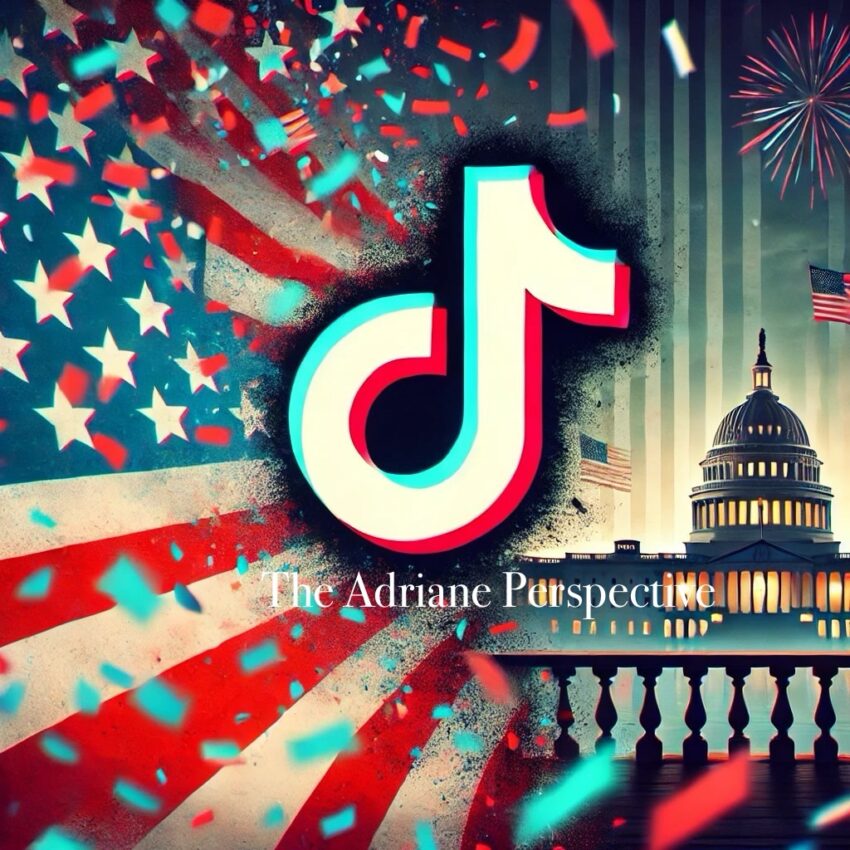By The Adriane Perspective
In a move that has stirred controversy and conversation across the United States, TikTok officially ceased operations on January 19, 2025. This action follows the enforcement of the Protecting Americans from Foreign Adversary Controlled Applications Act, which required ByteDance, TikTok’s Chinese parent company, to divest its U.S. operations or face a complete ban. The app, once a cultural phenomenon with over 170 million American users, has now been wiped from app stores and rendered inaccessible nationwide.
The Backstory: Trump’s Initial Push
TikTok’s U.S. journey has been anything but smooth. Its troubles began in 2020, when then-President Donald Trump issued an executive order calling for the app’s ban, citing national security concerns over the potential misuse of Americans’ data by its Chinese parent company. Trump’s administration argued that TikTok’s ownership posed a risk of surveillance by the Chinese government, making it a matter of national security.
However, legal challenges blocked Trump’s ban, and his successor, President Joe Biden, revoked the executive order in 2021, opting for a broader review of apps with foreign ownership. Despite this, concerns around TikTok’s ownership lingered, ultimately leading to the passage of the Protecting Americans from Foreign Adversary Controlled Applications Act in April 2024, reinstating the ban unless ByteDance divested its interests in TikTok.
Trump’s Reversal
While Trump was the original architect of TikTok’s U.S. troubles, he has since flipped his stance in a way that has left many scratching their heads. By March 2024, Trump vocally opposed the ban, stating that it would unfairly benefit Facebook, a company he has repeatedly criticised as being “the enemy of the people.”
Trump’s about-face coincided with a meeting with Jeff Yass, a prominent Republican donor and ByteDance investor, raising questions about the motivations behind his change of heart. Regardless, Trump’s opposition to the ban became a surprising twist in the TikTok saga, especially given his role in kick-starting it.
The Ban Takes Effect
Despite Trump’s change of tune, the ban pressed forward under the Biden administration, with the U.S. Supreme Court upholding its legality. As of January 19, TikTok has disappeared from app stores, leaving millions of users in the lurch. For creators who relied on the platform for income, and for millions of young Americans who used it to connect, this sudden shutdown is more than an inconvenience—it is a seismic cultural shift.
What Now?
In a recent statement, Trump floated the idea of granting ByteDance a 90-day reprieve to negotiate a sale to a U.S. company. While such a move could theoretically bring TikTok back online, the app’s future remains uncertain. Trump’s newfound support for the platform appears to be driven more by personal vendettas and political calculations than by a clear national security or economic strategy.
This episode highlights the inconsistency and often performative nature of political decision-making. Trump’s initial alarm over national security risks, followed by his more recent indifference, paints a picture of a leader who reacts impulsively rather than with thoughtful intent.
A Larger Question
The TikTok ban raises broader questions about the intersection of national security and digital culture. Should a government be able to shut down a widely used platform over concerns of foreign influence, even when those concerns remain largely unproven? Conversely, can a platform owned by a foreign power be trusted with the data of millions of Americans?
One thing is clear: TikTok’s rise and fall in the United States underscores the complex web of policy, politics, and power struggles shaping the digital age. As debates about online platforms and data privacy continue, the TikTok saga will likely serve as a cautionary tale—for both users and policymakers alike.
At The Adriane Perspective, we aim to cut through the noise to explore the deeper implications of major events. Follow us for thoughtful, critical takes on the issues that matter most.

